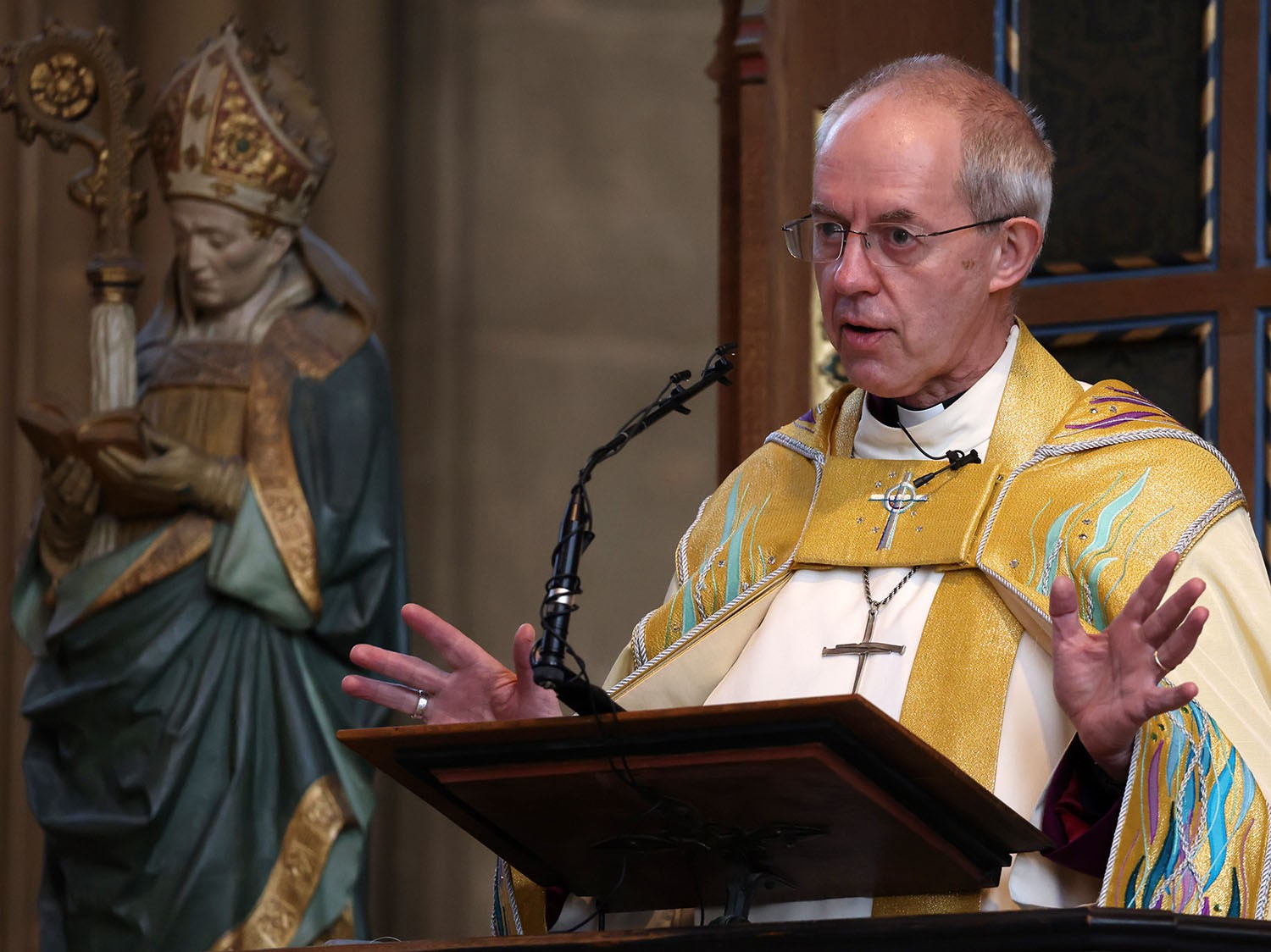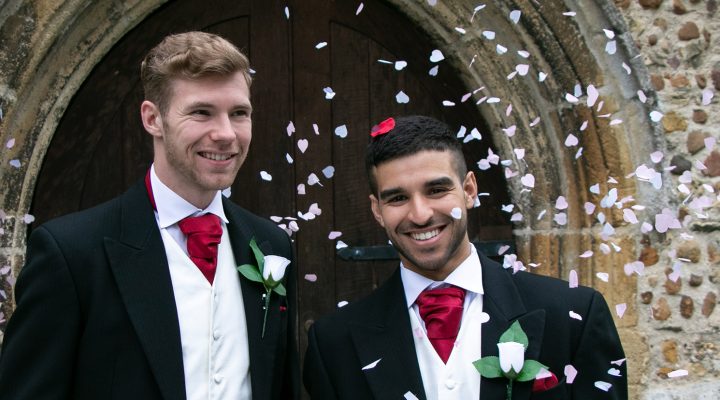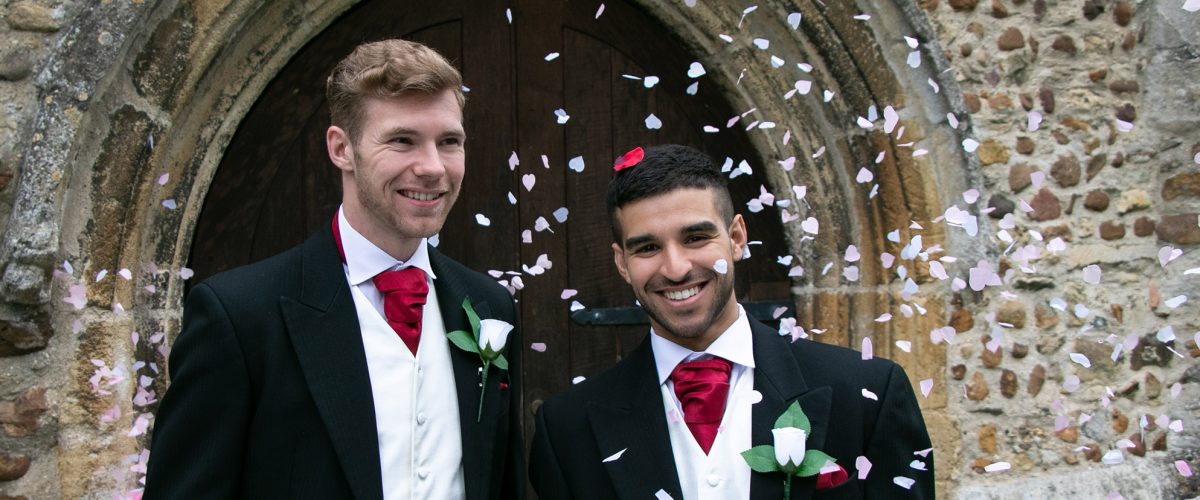The Church of England will not allow same-sex marriage, despite renewed debate and calls for change in the state church.
Bishops met Jan. 17 to finalize a recommendation after five years of debate on the issue that already has ripped apart American denominations.
While continuing to declare marriage is only between one man and one woman, the bishops will propose allowing liturgical blessings for same-sex couples. Although that’s not what progressives in the church wanted, this would mark the first time the church has formally recognized same-sex relationships.
This would mark the first time the church has formally recognized same-sex relationships.
That proposal was announced by the House of Bishops Jan. 18 although details of the proposal will not be announced until Jan. 20. The proposal will be presented to the church’s General Synod when it meets Feb. 6-9 in London.
In the United States, the Episcopal News Service reported: “The proposal likely will have implications beyond the Church of England, often referred to as the ‘mother church’ of the worldwide Anglican Communion, though the church has no authority over the communion’s provinces, which include The Episcopal Church. As leader of the Church of England and ceremonial head of the communion, Archbishop of Canterbury Justin Welby’s support for the proposal may cause further tension with bishops from other Anglican churches who oppose same-sex marriage.”

Justin Welby, archbishop of Canterbury, delivers his Easter Sermon at Canterbury Cathedral on April 17, 2022, in Canterbury, England. (Photo by Hollie Adams/Getty Images)
In a news release, Welby explained his support for the proposal: “This response reflects the diversity of views in the Church of England on questions of sexuality, relationships and marriage. I rejoice in that diversity, and I welcome this way of reflecting it in the life of our church. I am under no illusions that what we are proposing today will appear to go too far for some and not nearly far enough for others, but it is my hope that what we have agreed will be received in a spirit of generosity, seeking the common good.”
Under the proposal, same-sex couples still would not be able to have church weddings, but they would be able to have their civil marriages blessed in a church service. Same-sex marriage has been legal in England since 2014, one year before it became legal nationwide in the United States.
Same-sex marriage has been legal in England since 2014.
The House of Bishops also will propose some kind of change to the church’s rules for LGBTQ clergy, although exactly what is not yet clear. The Church of England currently allows clergy to be in same-sex relationships only if they commit to celibacy.
According to the news release, the bishops also plan to offer an apology to LGBTQ people, “for the ‘rejection, exclusion and hostility’ they have faced in churches and the impact this has had on their lives.”
As with other religious bodies in America — including the Episcopal Church, the Presbyterian Church (USA) and the United Methodist Church — policies on same-sex marriage have proved to be among the most divisive topics faced in a generation.
In England, several bishops have called for the church to fully embrace same-sex marriage. Last year, a survey of English Anglicans conducted by YouGov found 55% approved of same-sex marriage.
Differences of opinion within the larger worldwide Anglican communion closely mirror the divisions wracking the United Methodist Church, also a global communion.
Differences of opinion within the larger worldwide Anglican communion closely mirror the divisions wracking the United Methodist Church.
Currently, same-sex marriage ceremonies are performed in The Episcopal Church, the Scottish Episcopal Church and the Anglican Episcopal Church of Brazil. Blessings of same-sex marriages are allowed in the Anglican Church in Aotearoa, New Zealand and Polynesia and the Church in Wales.
At last year’s Lambeth Conference — a decennial gathering of bishops from all of the Anglican communion — tensions over same-sex marriage erupted. Conservative primates of Anglican provinces in Nigeria, Uganda and Rwanda refused to attend the conference because it welcomed married gay and lesbian bishops for the first time. Conservative bishops from the Global South — including Africa and Asia — also oppose same-sex marriage and recognition of LGBTQ persons.
These geographic fault lines are duplicated in the United Methodist Church, with the American church tilting more progressive than the church in Africa, for example.
And as with the UMC, conservative bishops in the Anglican communion have threatened to leave if they are forced to accept same-sex marriage as valid.
Related articles:
Weekly churchgoers are now the primary holdouts against same-sex marriage
British Baptists wrestle with same-sex marriage


